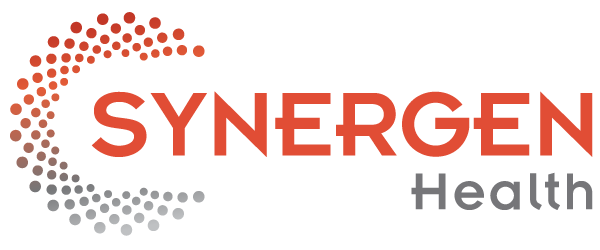 As the healthcare landscape continues to change, urgent care centers continue to see explosive growth with their ability to provide healthcare services quickly, affordably, and efficiently driving their popularity.
As the healthcare landscape continues to change, urgent care centers continue to see explosive growth with their ability to provide healthcare services quickly, affordably, and efficiently driving their popularity.
With the current growth rate for new urgent care centers at 7% per year, it’s safe to say that business is booming. However, without the proper processes in place, urgent care centers are in danger of losing revenue to billing and coding errors.
Here’s a closer look at the five most common urgent care billing and coding mistakes and information on how to fix them.
Billing Mistake #1: Poor Front Desk Processes
The revenue cycle starts at the front desk, and urgent care centers often fail to have good financial processes that begin at their front desks. It’s essential to ensure the staff collects copays at the beginning of patient visits instead of waiting until the end of their visit.
It is essential to confirm current insurance information, identify potential billing problems up front, and collect copay for a patient at registration or before they leave the clinic. The chance of getting this information later is significantly reduced.
Not ensuring coverage or collecting copays reduces the chances of collecting a full payment. Following up with patients to obtain missing information takes time, and patients aren’t likely to be in a hurry to respond—making it essential for urgent care centers to collect prior balances before they provide new services to patients and ensure patient paperwork is accurate before it heads to the billing department.
Failing to have good front desk processes in place can result in a slowdown in the claims process, an increase in bad debt, lost revenue, and more patient accounts that end up in collections.
Efficient financial processes can reduce this risk for the urgent care facility that starts at the front desk. Make sure the front desk staff members are well-trained in all procedures. We recommend having routine retraining for staff members to ensure everyone is up-to-date and following the standard processes.
Billing Mistake #2: Poor Contract Management
Setting up your contracts with payers involves entering a legal agreement with the payer in which they agree to reimburse the facility per the contracted fee schedule and market the facility as an in-network center in their network directory.
Failing to set up contracts with payers means the facility won’t be able to accept insurance, making it tough to build the patient volume required at least to break even.
Negotiating poor contracts can be nearly as bad as having no contracts. The reimbursement rates negotiated must be fair, reflecting the full scope of services provided at the urgent care center.
Insurance companies always want to lower costs, so negotiating higher reimbursement rates can be an uphill battle. However, it is possible to renegotiate with payers to increase compensation rates. In many cases, hiring a contracting expert to take care of negotiations for the facility can be the best course of action, ensuring the best possible reimbursement rates to fuel practice growth.
Billing Mistake #3: Failure to Follow Credentialing Guidelines
Credentialing and contracting processes are very different.
Credentialing each provider is critical to getting reimbursed for the services performed. Since every payer has unique credentialing requirements, don’t assume that each payer’s requirements are the same. Mid-level providers are no exception, check your contract to validate credentialing for all providers. Ensuring that providers are credentialed with payers for the urgent care center to process claims correctly is essential.
Some of the credentialing problems that many medical facilities run into when going through the credentialing process include lack of timing, poor organization, poor workflow, failure to keep contact information up to date, and failure to check into state compliance.
The best way to deal with this mistake is to hire credentialing experts who can work to properly navigate each payer’s credentialing requirements.
Billing Mistake #4: Incorrect Documentation or Under-Documented Records
Incomplete documentation is a common reason urgent care centers lose out on valuable charges.
To avoid missing out on revenue, it’s helpful to remind providers of some of the most commonly missed information and charges. The most frequently overlooked charges include X-rays, reading results, injections, blood draws, and labs. Providers may also forget to document drug dosage amounts.
Smart alerts within the EMR systems can provide reminders when providers are locking charts. Logging drugs dispensed and requested labs makes it easy to double-check them against the claim charges in the future.
Failing to document items in the correct sections can result in accidental under-coding, which results in lost revenue for the facility. Providers must also ensure they correctly document exams, history, and MDMs within the EMR system so office visit codes accurately reflect what occurred during the visit.
Additionally, billers should deeply understand payer guidelines to ensure claims are clean. Having a coding specialist, whose job includes checking and verifying codes before they are submitted, can significantly help reduce errors and ultimately get paid accurately for the services provided.
Billing Mistake #5: Making Errors While Filling Out Claims
Making errors when filling out claims is another prominent billing and coding mistake that can significantly affect an urgent care center’s revenue.
Effectively filling out claims can be complicated, and including unnecessary information or forgetting important information can result in a denial.
Working with an expert billing and coding service can help your urgent care team navigate all the intricacies of submitting claims and avoid these five common errors:
1. Not Enough Data
Failing to provide information to payers to support claims results in denials or delays.
For instance, problems can occur if a diagnosis code is not linked to the Current Procedural Terminology (CPT) or Healthcare Common Procedure Coding System (HCPCS) code or missing a fourth or fifth digit on the diagnosis code.
Although these errors are common mistakes, having a dedicated billing and coding team can improve the clean claim rates.
2. Upcoding
Upcoding occurs when the record is under documented and does not support the services provided.
Errors correlating the correct diagnosis and treatment codes during charge capture can contribute to additional errors.
3. Telemedicine Coding Errors
Healthcare technology makes providing quality care to patients in multiple locations much easier but complicates the billing process.
Guidelines for reporting telehealth visits are changing and require billing and coding team members to remain current on requirements.
4. Missing or Incorrect Information
Errors or omissions are common causes of claim denials and can be easily prevented by double-checking all fields before submitting a claim. Incorrect or missing patient names, addresses, birth dates, insurance information, sex, dates of treatment, and onset can all cause problems.
Although it may not happen often, sometimes information is accidentally entered into the wrong patient’s record. Claim edits should be investigated for mismatches in treatments and diagnoses, to avoid a claim denial. Unfortunately, this can be time-consuming and, therefore may be overlooked in busy billing departments.
5. Incorrect Procedure Codes
The medical coding community has experienced many changes in E/M coding and regulatory updates within the past few years. The combination of these new codes and increased patient volume has created the perfect environment for team members to make simple mistakes, such as inputting incorrect procedure codes if not trained or supported correctly.
Ongoing continuing education programs and other informal training sessions can help ensure that employees know the latest coding requirements and best practices.
Need Expert RCM Help?
The rapid growth of urgent care centers in the evolving healthcare landscape reflects their vital role in providing quick, affordable, and efficient healthcare services.
However, this growth comes with its set of challenges, particularly in the realm of billing and coding. The five common billing and coding mistakes discussed underscore the importance of well-established processes to ensure the financial health of urgent care facilities.
Our team of RCM experts is ready to help your billing and coding teams tackle the various challenges they may face.

